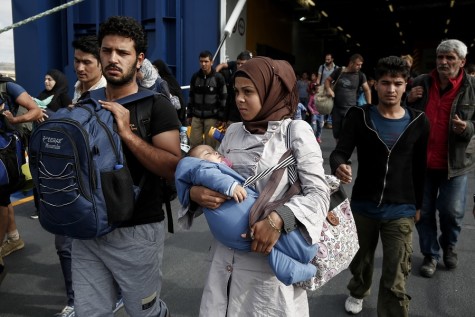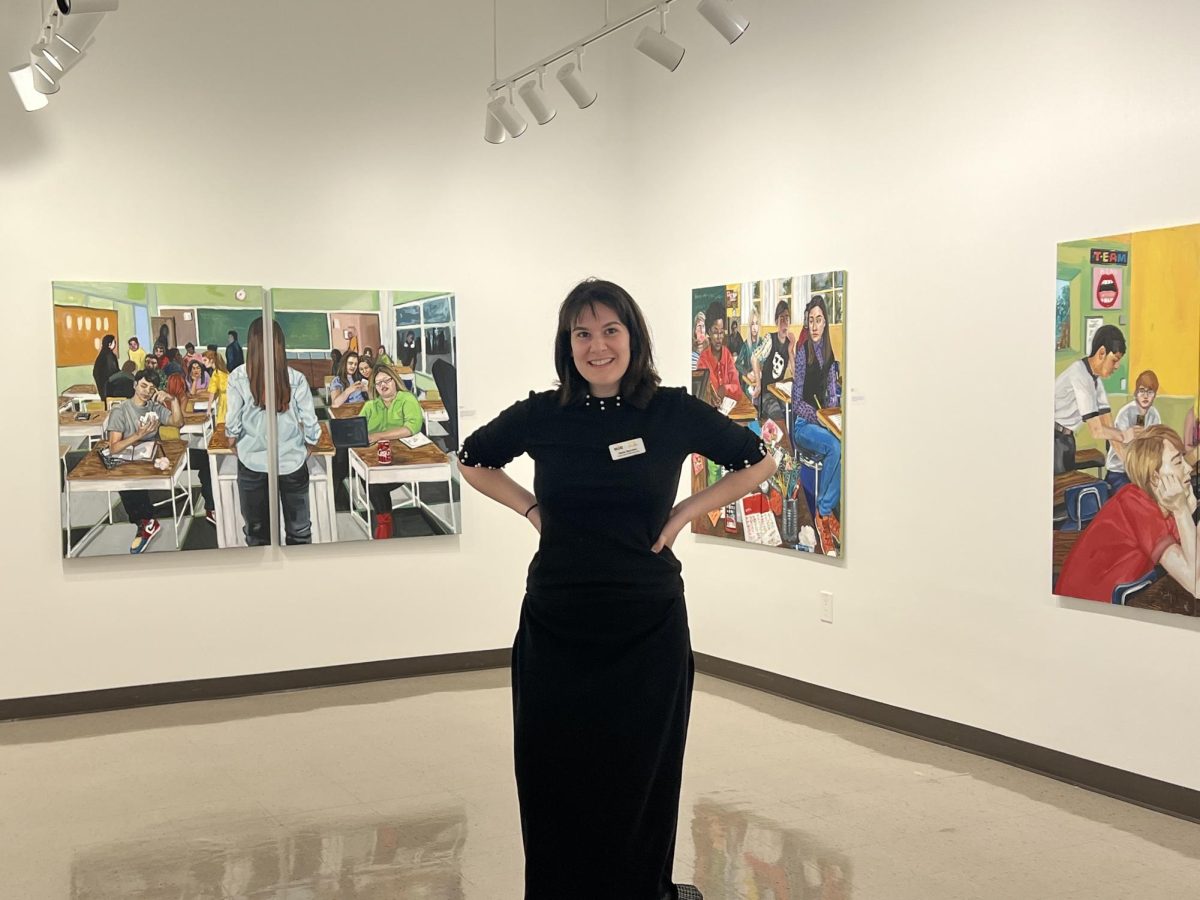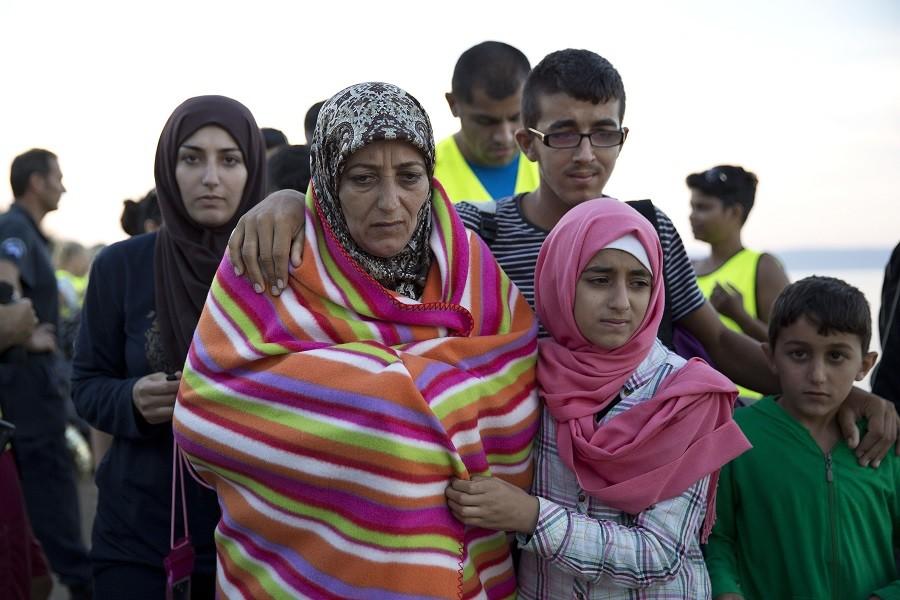Texas prepares for refugees
(AP Photo/Petros Giannakouris)
A Syrian family walk after they arrived with other refugees from Turkey to the shores of the Greek island of Lesbos, on a inflatable dinghy, Friday, Sept. 25. More than 260 thousand asylum-seekers have arrived in Greece so far this year, most reaching the country’s eastern islands on flimsy rafts or boats from the nearby Turkish coast.
October 2, 2015
Vandalism becomes civil war; pro-Democracy protesters, an authoritarian government, chemical warfare, up to 200 thousand deaths. After a group of teenagers were tortured for vandalism in March 2011, many protesters from the southern city of Deraa were furious with President Bashar Al-Assad. Years of oppression and turmoil finally erupted into civil war.
Like their neighbors in Libya, Tunisia, Egypt and Yemen, the Syrian population had seen enough and wanted to choose leaders and lifestyles on their own. Yet, the situation would not end in the overthrow of a dictatorship as it had in those other countries.
President Assad immediately struck down protests and mobilized his military with brutal force. As early as 2013, the U.N. began confirming the use chemical weapons against the rebellion.

Refugees disembark from a ferry after their arrival from the northeastern Greek island of Lesbos to the Athens’ port of Piraeus on Sunday, Sept. 27.
The death toll has been immense, the injuries to civilian populations overwhelming. Many call this a war, but almost all call it a humanitarian crisis. Even countries with fringe relationships with the Syrian people, like Israel, have taken in Syrian children for emergency treatment in their hospitals.
With the conflict burning on and no foreseeable end in sight, Syrian families have sought refuge from their homeland. They are scattering to neighboring countries as well as overseas. What began as a trickle of Syrians seeking shelter in strange lands, has become a flood of families desperate for safety.
More Syrians make the decision to leave every day for America’s golden door. Officials at the U.S. State Department stated that they expect about 2,000 Syrian refugees to arrive this year with as many as 10 thousand by the end of 2016.
Of those 2-10 thousand, Texas is expected to receive more refugees than any other state with Houston and Dallas seeing the majority. Many Texas resettlement agencies are involved in this process. Locally in Houston, the YMCA International Services, Catholic Charities, Interfaith Ministries, The Alliance for Multi-Cultural Community Services and Refugee Services of Texas have become involved with resettling refugees.
There are also many other agencies that are in partnership with these agencies like Bilingual Education Institute, “which is the primary contract for ESL for refugees.” Houston Community College is also involved with assisting refugees in vocational training.
Different non-profit organizations and churches are also encouraging Americans to donate what they can to help these families in need.
One of the great concerns for Texans, and Americans on the whole, is how the refugees will assimilate to life in the states. Others have voiced complete opposition. A third concern arises from current Syrian and Middle Eastern communities in the States. They fear racism and opposition from conservative Americans.
Houston has already seen a large influx of refugees. Just over a decade ago, the city was a major relocation spot for victims of Hurricane Katrina. The distinctions drawn between Katrina victims and Syrian refugees are vast.
While many Houstonians saw the victims in New Orleans as evacuees, and welcomed them with open arms, the same sympathy that may not be given to Syrians. Is it simply a matter of the Katrina victims being American? Or, do Americans really fear that these refugees fleeing war and terrorism are actually terrorists themselves?
The 1951 United Nations Refugee Convention set the definition of a refugee as someone who “owing to a well-founded fear of being persecuted for reasons of race, religion, nationality, membership of a particular social group or political opinion, is outside the country of his nationality, and is unable to, or owing to such fear, is unwilling to avail himself of the protection of that country.”
Before a refugee can enter the U.S., he or she has to go to a country of first asylum. And, from there, only a small percentage would be selected and identified for third country resettlement.
Jeff Watkins, Vice president for Global Initiatives for YMCA Greater Houston explained that the United Nations High Commission for Refugees will make referrals to the U.S. Department of State. Refugees are subject to screening, which would check their status and do background checks.
Once a refugee is screened and is allowed to enter the United States, Watkins says “the refugee resettlement is very complex. First you have to take care of their physical needs. We will get notification that refugees are arriving. We usually get a week to three weeks advance notice that refugees are arriving.”
Refugees are picked up upon arrival by a YMCA International Services staff member and brought to a furnished apartment, which is stocked with food other necessities. Refugee status lasts for one year, after which they can apply for a green card.
Soon, other assimilation processes need to start, such as conducting health screenings, enrolling kids in school, applying for a social security and enrolling in ESL. Watkins says that, “the ultimate goal is with our employment services program.”
It is still unclear on what is in store for Syrian refugees and for Syria itself.
Conflict continues to increase. After 4 years into the war, there still seems to be no clear resolution. With the resettlement in the U.S., Syrian families are able to be at ease. A war that had been started due to pro-Democracy protestors, families that had supported the rebellion can now be a part of a Democracy. Houston should see a significant change by the end of 2016. The month of March 2011 may very well remain a significant moment in Syrian history.

























